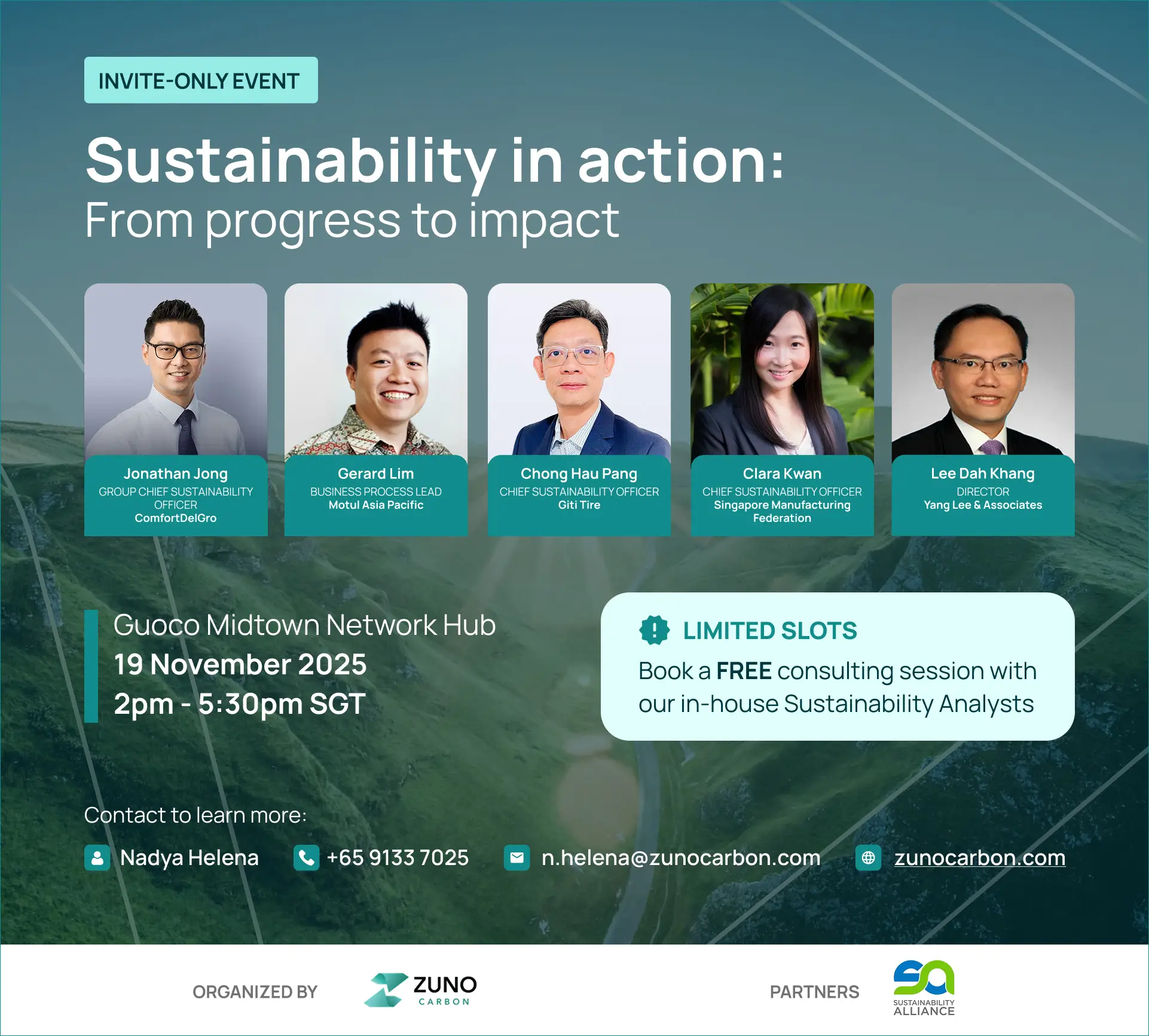As the drive for environmental, social, and governance (ESG) standards picks up speed, Malaysia is emerging as a leader in Southeast Asia. Since the 2015 amendments by Bursa Malaysia to sustainability statements in annual reports, companies nationwide have been syncing their operations with broader sustainability targets.
These changes encourage businesses of all sizes to reflect on their influence beyond just the financial aspects—they're also considering their environmental and social impacts.
In this blog, we’ll cover the current status of ESG practices in Malaysia, we'll discuss the ins and outs of ESG reporting, look at the benefits these practices offer, and examine the new doors they open for businesses engaging in sustainability practices.
Current Status of ESG practices in Malaysia
In 2015 Bursa Malaysia, the country’s stock exchange, required companies both on the Main and ACE markets to share detailed sustainability reports within their annual reports. However, they did not mandate which standards organizations should align with. Although an important step forward, this resulted in reports from different companies not being standardized, and made it difficult for investors and stakeholders to draw comparisons on ESG efforts between organizations.
In September 2022, Bursa Malaysia announced enhanced sustainability reporting requirements in order to improve reporting practices. The new requirements mandate that publicly listed companies disclose common sustainability matters e.g. anti-corruption, energy management and data privacy. Listed companies also have to provide financial information and performance targets.
With a phased approach, Main Market-listed issuers had to begin disclosing common sustainability matters for 2023 onwards, and should begin TCFD aligned climate related disclosures in 2025, with full disclosure by 2027
ACE Market-listed issuers must begin reporting on common sustainability matters by 2025, and by 2026 they should also add waste and emissions reporting plus their transition plan to a low carbon economy.
Within Malaysia, different states are also taking action. Take a look at initiatives like the Penang Green Agenda to find out how they are trying to make Penang a ‘Cleaner, Greener, Safer, Healthier and Happier state’.
It's a brilliant example of sustainability commitment, focusing on making urban development more sustainable with smarter waste management and greener infrastructure projects.

Watch out for these 6 key ESG trends in Malaysia for 2024
1. Enhanced regulatory frameworks
In 2024, Malaysia has rolled out enhanced ESG guidelines requiring more detailed ESG disclosures from large corporations and SMEs. This initiative ensures that businesses across the board understand their environmental and social impacts and actively work on enhancing them.
For SMEs, adapting to these stricter reporting requirements means optimizing their operations to align with global standards. This adaptation is vital because today's investors and consumers prefer companies that strongly commit to ESG principles.
2. Integration of advanced technologies
Like in any other industry, AI is helping companies to process and manage complex ESG data sets. It's making data management more streamlined and boosting the precision of reports and decisions. Fintech can also be seen to be making its mark as an ESG trend in Malaysia, especially in optimizing how resources are used and improving energy efficiency to make business practices more sustainable. These technologies improve automation and support smarter, data-driven choices, helping companies expand what they can do in terms of sustainability.
3. Focus on transparency and corporate governance
Companies in Malaysia are enhancing their governance frameworks and trying to build a stronger trust factor with their investors and stakeholders. There's a push to make these structures more transparent and accountable. Part of this effort involves sharpening the clarity and consistency of their ESG (Environmental, Social, and Governance) reports.
With improved corporate Governance and straight forward reporting processes, stakeholders can make informed choices using trustworthy and clear ESG information. Companies that adopt these transparent practices are often rewarded with a boost in investor trust.
4. Expansion of green financing
In the finance sector, the concept of green finance is gaining traction rapidly, with companies shifting towards eco-friendly investment choices. These can be through green bonds and funds focused on ESG criteria.
With the rising call for sustainability reporting in Malaysia, companies with these financial options are successfully receiving funding from investors looking to support projects that yield environmental benefits.
Green financing is a practical solution that meets the urgent need for substantial investment in sustainable projects and aligns investor interests with broader global sustainability goals. It creates a direct route for capital to support initiatives focused on environmental preservation and climate action.
As these financing options become more mainstream, they encourage corporations to adopt more sustainable practices by making the financial incentives for such choices clear and compelling.
5. Community involvement and social responsibility
Another key ESG trend in Malaysia is businesses leaning towards integrating with local communities for long-term success and sustainability. This involves engaging actively and making a meaningful contribution to these areas.
Companies are now striving to engage with communities more deeply by understanding and addressing their needs and aspirations. This involves transparent communication and genuine collaboration where the benefits of business initiatives are mutual.
For example, businesses might partner with local organizations on projects that enhance local infrastructure, provide educational opportunities, or support local economic growth.
6. Emphasis on climate action and carbon reduction
Firms are deploying robust strategies to minimize their carbon footprints and align with national and global climate objectives. A key approach is integrating ESG metrics to drive these efforts, which have proven effective in curbing corporate carbon emissions.
For instance, firms are investing in sustainable technologies and improving resource efficiency. Through this, they are able to reduce carbon emissions while also boosting operational efficiencies and long-term profitability.
Learn from these leading companies’ ESG initiatives
Need inspiration for your ESG efforts? Here are three ESG initiatives from some of the top-performing companies in Malaysia:
1. Nestlé's Water Stewardship
Nestlé is dedicated to revitalizing local water cycles through their water stewardship strategy.
By 2025, they aim to roll out this regeneration program in all areas where their bottled water business operates.
They plan to:
· Thoroughly map out water usage throughout their supply chain,
· Invest in advanced water-saving technologies at their production sites,
· Collaborate with local communities to improve water management practices.
Takeaway: Effective water and energy management is crucial. Malaysian companies should assess their environmental impact, set clear reduction goals, and seek innovative solutions to enhance sustainability.

2. Maybank Champions Community Empowerment
Maybank is dedicated to enhancing community welfare through accessible and inclusive financial services. They are implementing initiatives that promote simplicity and accessibility in banking to build trustworthy relationships and support sustainable futures for their communities.
Takeaway: Maybank is leveraging its resources to ensure financial services contribute positively to the communities they serve. It reinforces the idea that banking can also help promote societal well-being and inclusivity.
3. Tenaga Nasional Berhad (TNB) Sustainability Transparency
TNB's Governance is focused on strengthening sustainability and transparency to support its net-zero goals. By aligning with the National Energy Transition Roadmap, TNB has enhanced its reporting and accountability.
TNB's proactive adjustments, like introducing a Sustainability Division, aim to manage better and report on over 150 ESG indicators, setting a benchmark for industry-wide transparency.
Takeaway: TNB's governance initiatives showcase their commitment to a transparent and accountable sustainability journey. It promises a future where corporate actions are both visible and impactful.
Lead the ESG charge with Zuno Carbon's advanced sustainability tools
Zuno Carbon provides an end-to-end ESG solution to enhance your sustainability efforts. Our platform enables precise tracking of carbon emissions by providing detailed carbon accounting and ESG data measurement and tracking that aligns with global reporting standards.
Zuno Carbon equips you with advanced tools to:
Measure
· Precisely track and analyze carbon emissions across various business operations.
· Provide a single source of truth for your carbon emissions.
· Implement real-time monitoring to ensure accurate ESG data collection.
· Use AI powered features for instant emission factors matching.
Report
· Generate comprehensive reports that meet global ESG frameworks.
· Simplify the reporting process with automated data aggregation and formatting.
· Enhance transparency with stakeholders through clear, detailed environmental disclosures.
Reduce
· Set realistic decarbonization targets based on The Science Based Targets Initiative (SBTi).
· Identify high-impact areas for intervention and improvement.
· Leverage analytical insights to implement effective decarbonization strategies.
To benefit from the emerging trends discussed in this blog, companies need to evaluate their current ESG performance, set clear, measurable goals for improvement, and embrace a culture of continuous learning and adaptation.
Interested in enhancing your ESG strategy? Explore how Zuno Carbon can transform your sustainability practices. Schedule a demo to see our platform in action.
Learn more about ESG transformation in Malaysia.
ESG Malaysia is dedicated to supporting the nation's journey towards sustainable development. This organization provides a great platform for the public and professionals to access the latest ESG insights, participate in workshops, and offer numerous networking opportunities to enrich the community's understanding and implementation of sustainable practices.
The Zuno Carbon team has conducted multiple workshops in collaboration with ESG Malaysia on Scope 1-3 GHG accounting and navigating the complexities of the ESG landscape. For updates on upcoming events and more insights, make sure to checkout Zuno Carbon on LinkedIn.
.webp)
Frequently Asked Questions (FAQs)
Is ESG reporting compulsory in Malaysia?
In Malaysia, ESG (Environmental, Social, and Governance) reporting isn't mandatory for all companies. However, since 2016 those listed on Bursa Malaysia must integrate sustainability into their annual report and undertake mandatory ESG reporting.
What is Malaysia doing for sustainability?
Malaysia is actively working towards its sustainability goals with key initiatives like the National Energy Policy and Green Technology Policy. These plans aim to increase the use of renewable energy and improve energy efficiency across various sectors.
What is the ESG rating of Malaysia?
Malaysia's ESG rating, evaluated by global standards, varies by agency but generally reflects a moderate performance. The country is recognized for its efforts in governance and social aspects, though environmental challenges remain. Efforts to improve these ratings are ongoing, with increased focus on sustainable policies and practices.





.webp)
.webp)




